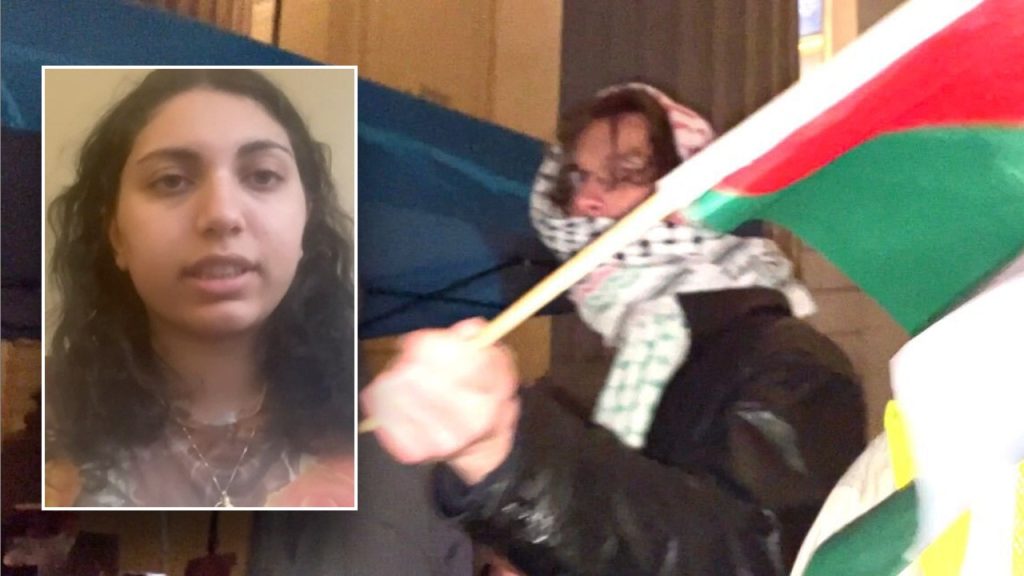A Jewish student journalist at Yale University, Sahar Tartak, was covering an anti-Israel protest on campus when a protester wielding a Palestinian flag jabbed her in the eye. The protest had been brewing for a week, with students setting up a tent encampment, creating a memorial to a Palestinian terrorist, and showcasing a mock F-16 covered in fake blood. When Tartak attended the protest, she was singled out by the crowd for being Jewish. The protesters formed a human blockade around her, taunting and chanting incendiary slogans. One protester with a covered face hit Tartak in the eye with a Palestinian flag.
Tartak tried to run after the assailant but was blocked by the human blockade, who wanted to protect him. She reported the incident to the police, who called an ambulance for her. Tartak believes the violence was bound to happen, as the university did not intervene for fear of escalation. No administrators were present at the protest, and campus police were not instructed to disband it when things turned violent. Tartak described the protests as “mob violence” and criticized the organizers for allowing violence against Jewish people to occur with impunity.
The incident at Yale follows protests at Columbia University, where demonstrators were heard shouting pro-Hamas slogans and setting up an encampment on campus. These protests have erupted on college campuses in response to Israel’s offensive in Gaza, prompted by a Hamas assault on Israel that resulted in casualties and hostages. The Gaza Health Ministry reported that the conflict has resulted in the deaths of thousands of Palestinians, though Israel disputes these figures and the ministry does not differentiate between combatants and civilians in its count.
Protests at Ivy League schools like Yale and Columbia have sparked concerns about escalating violence and the lack of intervention by university administrations and campus police. Sahar Tartak described feeling lucky that the assailant’s flag was not sharp at the end, suggesting that the violence could have been much worse. She emphasized that the movement behind the protests is centered on violence against Jewish people and promotes dangerous ideologies. The wave of protests on college campuses highlights the need for a response from university officials to prevent further violence.
In response to the incident, Tartak called attention to the protesters’ use of anonymity to shield themselves from accountability for their actions. She noted the danger of allowing these demonstrations to continue unchecked and warned of the potential for violent extremists to take over universities if their behavior is not addressed. Tartak criticized the university’s lack of intervention and the encouragement of violent behavior within the protest movement. She highlighted the importance of challenging these actions and protecting the safety of all students, regardless of their beliefs.
As the protests against Israel’s actions in Gaza continue to unfold on college campuses, concerns about escalating violence and the safety of students have been raised. The lack of response from university administrators and campus police has allowed protests to devolve into mob violence, as seen in the incident at Yale University involving Sahar Tartak. It remains to be seen how universities will address these issues and work to prevent further violence on their campuses in the future.


